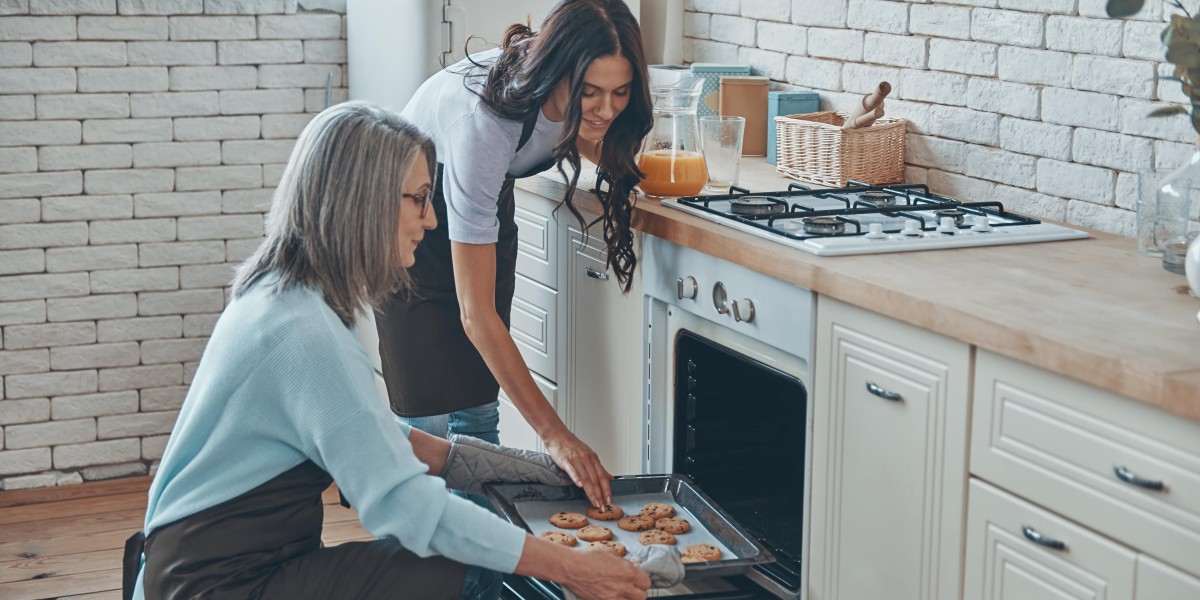The Complete Guide to Built-In Range Ovens
Built-in range ovens have actually become a vital function in modern-day cooking areas, using a combination of design, performance, and convenience. With various options readily available in the market, comprehending what to try to find in a built-in range oven can help property owners make informed choices customized to their cooking requirements. This detailed guide will check out built-in range ovens, their benefits, types, features to think about, installation guidelines, and more.
What is a Built-In Range Oven?
A built-in range oven, sometimes described as a wall oven or built-in oven, is a kitchen appliance integrated straight into the cabinets. Unlike freestanding designs that come with an attached cooktop, built-in ovens generally work individually of the cooking surface area. They provide a seamless, upgraded aesthetic to kitchen areas, improving the overall style while taking full advantage of space.
Advantages of Built-In Range Ovens
Built-in range ovens offer a number of benefits over other types of ovens:

- Aesthetic Appeal: These ovens can be developed to match the cabinets style and color, providing the kitchen an unified and contemporary appearance.
- Space-Saving Design: Built-in ovens complimentary up counter area, making them perfect for smaller sized cooking areas or homes with open floor plans.
- Versatile Cooking Options: Many built-in ovens featured a variety of cooking modes such as convection, steam, and rotisserie, providing versatility for various cooking styles.
- Improved Accessibility: Installed at eye level, built-in ovens can be more hassle-free to load and dump without bending over or crouching.
- Energy Efficiency: Many contemporary built-in ovens come with energy-saving modes that minimize electrical energy intake.
Types of Built-In Range Ovens
There are numerous types of built-in range ovens to consider:
1. Electric Built-In Ovens
Electric built-in ovens are powered by electrical energy and typically use more constant cooking results. They are simple to set up and often come with features such as self-cleaning alternatives, digital controls, and numerous cooking modes.
2. Gas Built-In Ovens
Gas built-in ovens use gas or lp as a fuel source. Lots of chefs choose gas ovens for their immediate heat control and capability to reach heats quickly.
3. Convection Ovens
Convection built-in ovens flow hot air with a fan to cook food more equally. They can decrease cooking times and are ideal for baking and roasting.
4. Wall Ovens
Wall ovens are a specific kind of built-in range oven that is vertically set up into the wall kitchen cabinetry. They can frequently be coupled with a separate cooktop or microwave.
5. Steam Ovens
Steam-built-in ovens prepare food using steam, maintaining nutrients and tastes. They are outstanding for health-conscious cooking and can also be utilized for reheating.
| Type | Secret Features | Ideal For |
|---|---|---|
| Electric | Constant cooking, self-cleaning | Baking and everyday cooking |
| Gas | Immediate heat control | Precision cooking, high heat |
| Convection | Hot air flow | Baking and roasting |
| Wall | Vertical installation | Space-saving kitchen styles |
| Steam | Nutrient preservation | Health-conscious cooking |
Key Features to Consider
When choosing a built-in range oven, consider the following features:
1. Size and Capacity
Procedure the setup space carefully to choose the right size. Built-in ovens usually can be found in basic sizes, such as 24", 27", or 30". Capacity likewise matters; bigger ovens can accommodate more dishes, making them perfect for households or those who frequently amuse.
2. Cooking Modes and Functions
Various built-in ovens offer a range of cooking modes. Try to find options like:
- Conventional baking
- Convection baking
- Broiling
- Roasting
- Steaming
3. Controls and Smart Features
Modern built-in ovens frequently include digital controls or clever features that allow for accurate temperature changes and cooking times. Some designs are equipped with Wi-Fi capabilities for remote operation through an app.
4. Design and Finish
Choose a style that matches your kitchen aesthetic appeals. Available finishes include stainless-steel, black, white, or custom cabinetry panel-ready designs to seamlessly blend with the kitchen decor.

5. Self-Cleaning Options
Lots of built-in ovens offer self-cleaning features that streamline maintenance. This can conserve time and effort in keeping the appliance in ideal condition.
Installation Guidelines
Installing a built-in range oven requires factor to consider for ventilation, electrical supply, and correct measurements. Here is a simplified installation process:
- Preparation: Measure the space and ensure adequate clearance for door and drawer operation.
- Electrical and Gas Connections: Ensure your home has the needed electrical supply or gas lines. It's suggested to have a licensed expert manage gas connections or complex electrical setups.
- Ventilation: Some ovens might require external ventilation. Guarantee the kitchen style accommodates correct air circulation.
- Positioning: Mount the oven firmly within the kitchen cabinetry, following the manufacturer's instructions to prevent getting too hot or insufficient support.
Often Asked Questions (FAQs)
1. What's the distinction in between a built-in oven and a freestanding oven?
Built-in ovens are set up into the cabinets and do not feature a cooktop, while freestanding ovens are self-contained with an integrated cooktop. Built-ins generally use a more streamlined appearance however might take more effort to install.
2. Are built-in range ovens energy-efficient?
Yes, lots of modern-day built-in range ovens are created to be energy-efficient, featuring energy-saving modes and much better insulation compared to older models.
3. How much do built-in range ovens cost?
Prices for built-in range ovens can range widely based upon brand name, features, and size. Standard models can begin around ₤ 800, while high-end models can surpass ₤ 3,000.
4. Can I set up a built-in oven myself?
While some useful homeowners might try setup, it is typically best to work with a professional to ensure safety and compliance with building regulations, particularly for gas connections.
A built-in range oven can considerably boost a kitchen's performance and looks. With a variety of options, features, and styles, property owners have the opportunity to select a system that meets their cooking needs while making sure a seamless design. Investing in a high-quality Built In Range Oven-in range oven can help elevate cooking experiences, leading the way for tasty meals and memorable gatherings. When thinking about a brand-new build or a remodelling, incorporating a built-in range oven is a wise choice for modern kitchens.







